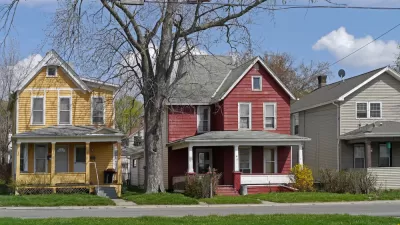Did it seem odd when Stanford University withdrew from a competition to build a new $2 billion Applied Sciences and Engineering campus in New York City just as officials were about to decide the winner, and Stanford was the perceived front-runner?
A new article published in The Stanford Daily includes the first on-the-record details of what transpired in the negotiating process, and it does not paint the City of New York in a positive light. Caroline Chen provides the details, leaving readers to wonder if the statements made by Stanford officials reflect sour grapes or something more sinister.
"Stanford withdrew its bid for a New York applied sciences and engineering campus because the city repeatedly revised the terms of its offer and could not be trusted as a reliable partner, said Stanford administrators, responding to media reports that Stanford was not adequately prepared for the tough negotiation style of New York officials," writes Chen.
"At the end of the day, Stanford maintains that the bid was worthwhile, even though the proposal cost the University $3 million."
FULL STORY: Stanford officials reflect on NYC proposal

Planetizen Federal Action Tracker
A weekly monitor of how Trump’s orders and actions are impacting planners and planning in America.

Map: Where Senate Republicans Want to Sell Your Public Lands
For public land advocates, the Senate Republicans’ proposal to sell millions of acres of public land in the West is “the biggest fight of their careers.”

Restaurant Patios Were a Pandemic Win — Why Were They so Hard to Keep?
Social distancing requirements and changes in travel patterns prompted cities to pilot new uses for street and sidewalk space. Then it got complicated.

San Francisco Suspends Traffic Calming Amidst Record Deaths
Citing “a challenging fiscal landscape,” the city will cease the program on the heels of 42 traffic deaths, including 24 pedestrians.

California Homeless Arrests, Citations Spike After Ruling
An investigation reveals that anti-homeless actions increased up to 500% after Grants Pass v. Johnson — even in cities claiming no policy change.

Albuquerque Route 66 Motels Become Affordable Housing
A $4 million city fund is incentivizing developers to breathe new life into derelict midcentury motels.
Urban Design for Planners 1: Software Tools
This six-course series explores essential urban design concepts using open source software and equips planners with the tools they need to participate fully in the urban design process.
Planning for Universal Design
Learn the tools for implementing Universal Design in planning regulations.
Heyer Gruel & Associates PA
JM Goldson LLC
Custer County Colorado
City of Camden Redevelopment Agency
City of Astoria
Transportation Research & Education Center (TREC) at Portland State University
Camden Redevelopment Agency
City of Claremont
Municipality of Princeton (NJ)





























